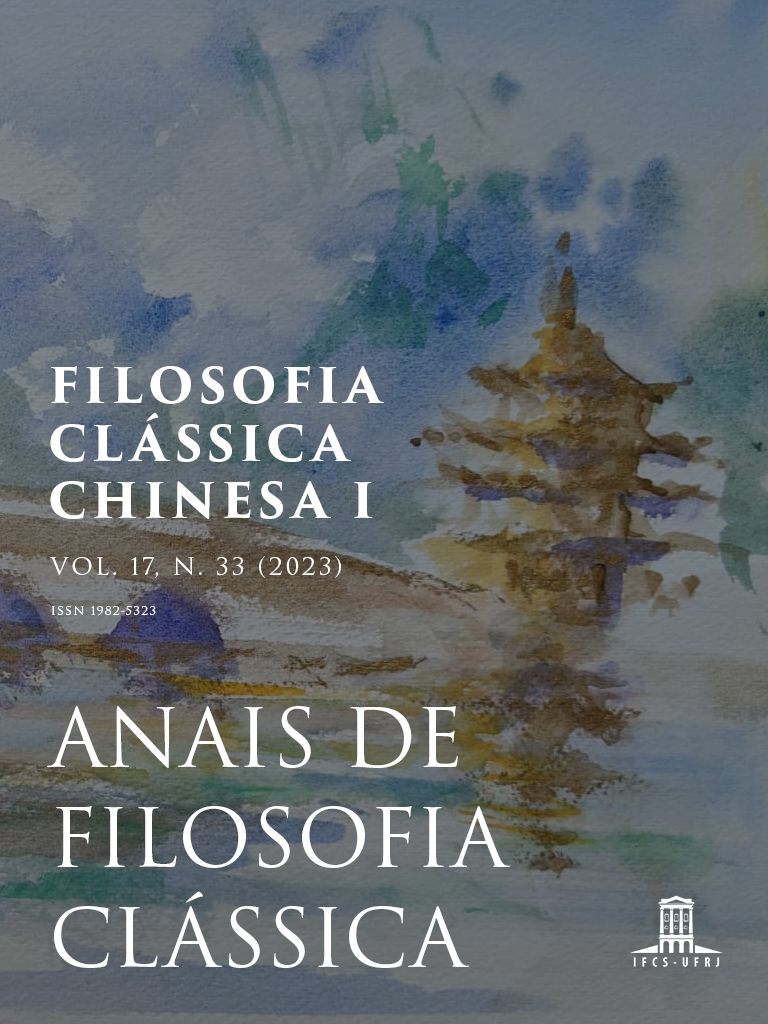Turn to Butterfly Dream
Zhuangzi’s thought experiments and animal consciousness
DOI:
https://doi.org/10.47661/afcl.v17i33.65509Parole chiave:
semantics, thought experiment , enthymeme, dream, emotions, analogy, wuhua, 物化, Laozi, 老子, Zhuangzi, 庄子Abstract
Based on Quinean logico-linguistic interpretations of Laozi’s Dao De Jing we identify, analyze and interpret Zhuangzi’s Butterfly Dream as a thought experiment. Identified by thought experiment mood of dream we analyze it as enthymeme (incomplete argument) that can be completed by hidden analogy revealing main presupposition of animal consciousness. We show similar analyses of Zhuangzi’s Happiness of Fish. Zhuangzi's thought experiment exemplifies Daoist principle of wuhua (物化), possibly related to interdependency of opposites, like subject vs. object, consciousness vs. sub-/unconsciousness, waking vs. dreaming/sleeping. Happiness of Fish and Butterfly Dream are global cross-cultural thought experiments—both western and eastern interpretations coincide in their analyses. Having the ability of dreaming and feeling emotions, such as happiness and pain, is nowadays considered as evidence of (animal) consciousness in the western world. As Zhuangzi text may show classical Daoism may embrace animal welfare, practice vegetarianism and tend to learn emotions from animals.
Downloads
Pubblicato
Fascicolo
Sezione
Licenza
Copyright (c) 2024 Anais de Filosofia Clássica

Questo lavoro è fornito con la licenza Creative Commons Attribuzione - Non commerciale - Condividi allo stesso modo 4.0 Internazionale.


